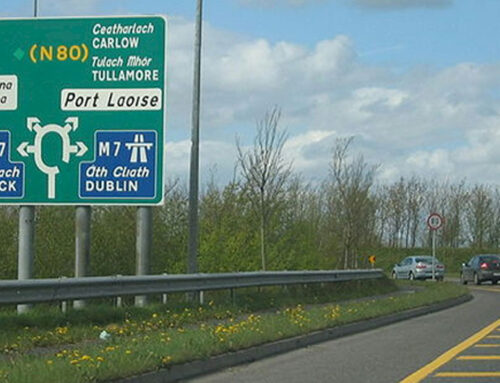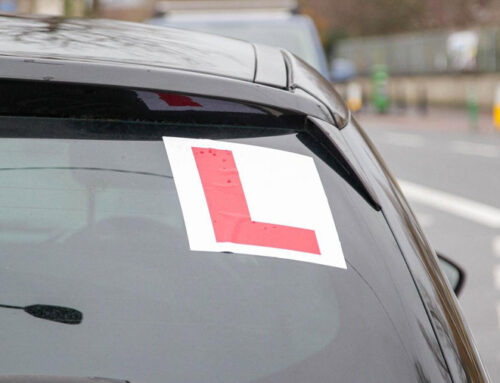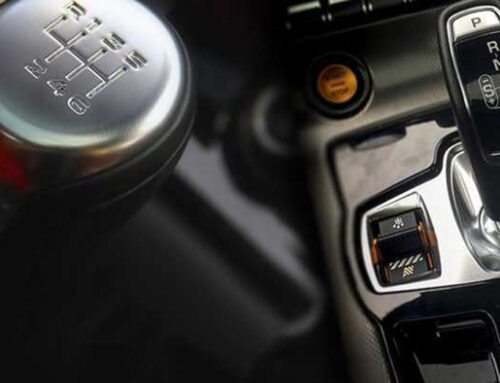What to Do If You Fail Your Driving Test: Next Steps Explained
Failing your driving test isn’t the end of the road. Knowing what to do if you fail your driving test next steps is crucial for your progress. This guide will help you understand your test results, reapply for the test, and prepare better for your next attempt.
Key Takeaways
- Understanding the reasons for your driving test failure, categorised into Grade 1, Grade 2, and Grade 3 faults, is essential for targeted improvement.
- Reapplying for the driving test can be done online through the My Road Safety website, requiring necessary identifiers such as your driver and PPS numbers.
- Preparing for the next attempt involves thorough practice, potentially with a qualified instructor, focusing on areas of struggle from the previous test.
Understanding Your Test Result
Comprehending the reasons behind your driving test failure is crucial for making progress. The test result is usually broken down into three categories of faults:
- Grade 1 faults: Minor faults that usually don’t affect your overall result.
- Grade 2 faults: More serious faults that can be accumulated up to a certain limit.
- Grade 3 faults: Faults that result in automatic failure.
Common reasons for failing a driving test include inadequate observation, incorrect road position, and not responding correctly to traffic lights. These issues often stem from a lack of awareness of your surroundings or not knowing how to appropriately position your vehicle in various traffic situations. Recognising these common pitfalls allows you to target specific areas for improvement in your driving skills.
Upon failing the theory test, you’ll receive a detailed report on your performance. This report is not just a list of your mistakes but a valuable tool that highlights the areas where you need to improve. It will guide your future study and practice, helping you to focus on the skills that need the most attention. For further information, this feedback helps you make the necessary adjustments before your next attempt, once you have passed. Additionally, always check the expiry date on your learner permit or related documents to ensure they are valid for your next test attempt.
You can accumulate up to 8 Grade 2 faults without failing, provided they don’t form a pattern of significant deficiency. This means that while you should aim to minimise all faults, understanding the weight of each type can help you prioritise your practice sessions effectively.
Driving Test Fees and Costs
Understanding the fees associated with your driving test is an important part of planning your next steps. The Road Safety Authority (RSA) sets the official costs for all driving tests in Ireland, and these fees can vary depending on the category of vehicle you are testing for.
As of 2025, the fee for a standard car driving test is €85. These fees are payable when you book your test and are required for each attempt, whether it’s your first test or a re test.
It’s important to note that these fees are subject to change, so always check the latest information on the Road Safety Authority website before booking. Being aware of the costs involved helps you budget for your driving journey, whether you’re preparing for a car, motorcycle, or bus driving test. This ensures there are no surprises when it comes time to apply for your next test and keeps you focused on achieving your full driving licence.
Reapplying for a Driving Test
After understanding your test result, reapply for a new test. You’ll need your driver number and PPS number to start this process. These identifiers are crucial for your learner permit application. Applicants must have held a provisional license for at least six months before they can apply for your driving test, ensuring that you have had adequate time to gain experience on the road as a first learner permit holder. When reapplying, you must hold a valid learner permit at the time of application.
The application process is straightforward and can be completed online via the official My Road Safety website. This platform allows you to apply for a retake of the driving test conveniently from your home. Once you submit your application, you are placed in an invitation queue and must wait your turn to be invited to book a test slot, depending on demand and availability. The entire application process takes about 10 to 15 minutes, making it a quick and efficient way to set up your new test date. Additionally, you can also apply via RSA.ie or by post using an application form if you prefer.
Specify your nearest test centre when filling out the application form. This ensures that you are allocated a test location that is convenient for you. If you fail your driving test, you must reapply through the MyRoadSafety online portal and will need certification of your failed attempt for the second attempt or renewal of your learner’s license. When renewing or reapplying for learner permits, you will need to provide the required documentation, such as proof of identity and residency, and follow the official procedures set by the NDLS.
A debit or credit card and a valid email address are required to apply online to complete the online application. This ensures that you can pay the application fee and receive important updates about your application date, test date, and other relevant information.
Preparing for Your Next Attempt
Preparing thoroughly is key to passing your driving test on the next attempt. Learner car drivers should practice driving in various traffic conditions to reduce test anxiety and avoid mistakes. When practicing on public roads, learner car drivers are required to be accompanied by a qualified driver who holds a full driving licence in the relevant vehicle category and has at least two years of driving experience. This supervision is mandatory to ensure safety and compliance with legal requirements. Practicing on public roads under these conditions helps you become more adaptable and confident behind the wheel. Whether it’s driving in heavy traffic, on rural roads, or during different weather conditions, varied practice will prepare you for any scenario you might encounter during the test.
Taking additional lessons with a driving instructor can be beneficial. These targeted practice sessions can help you focus on the specific areas where you struggled during your previous test. A qualified instructor offers valuable feedback and can guide you through maneuvers and skills needing improvement.
Regular practice with a qualified instructor improves your practical skills and significantly boosts your confidence. Confidence is crucial when taking the driving test, as it affects your overall performance and ability to handle unexpected situations calmly.
Practicing the specific maneuvers you struggled with during the waiting time after a failed driving test is beneficial. Whether it was:
- parallel parking
- reversing around a corner
- handling roundabouts
Dedicating extra time to these areas can make a significant difference in your next test. Continuous practice and refinement of your driving skills are crucial for achieving a passing score.
Essential Driver Training (EDT)
Essential Driver Training (EDT) is a mandatory program for all learner permit holders in Ireland. Learner drivers must display L plates on their vehicles while completing EDT sessions, as it is a legal requirement and indicates their status to other road users. The specific EDT requirements may depend on the licence category for which the learner is training. The program consists of 12 one-hour sessions designed to improve your driving skills and ensure you are well-prepared for the driving test. These sessions cover a range of fundamental driving skills, from basic vehicle controls to more complex maneuvers and traffic situations.
Each EDT session must be completed with an Approved Driving Instructor (ADI). Your ADI will guide you through the lessons, ensuring that you understand and can apply the skills being taught. These sessions must be recorded in a logbook, serving as proof that you have completed the mandatory training. This logbook is an important document that you will need to present when applying for your driving test.
A reduced version of the EDT course is available for those holding a full car license from a non-exchange country. This allows experienced drivers to complete fewer sessions while still ensuring they meet the necessary standards for driving in Ireland. This flexibility helps accommodate drivers with different levels of experience and backgrounds.
The EDT program aims not only to help you pass the driving test but also to make you a safer and more competent driver overall. By focusing on essential skills and offering structured, professional instruction, the EDT ensures learner drivers are well-prepared for both the test and real-world driving scenarios.
Managing the Waiting Period
The waiting period between tests can be a challenging time, but it’s important to stay positive and motivated. Seeking support from friends and family can help you stay focused. Their encouragement can provide a much-needed boost and keep you motivated during this time.
Mock driving tests are incredibly helpful during the waiting period. These practice tests simulate real test conditions and provide constructive feedback on your performance. Identifying and working on areas that need improvement enhances your driving skills and builds confidence for your next test.
During the waiting period, the goal is to continuously improve and avoid feeling discouraged. Use this time effectively to practice and refine your skills, and you’ll be better prepared for your next driving test. Maintaining positivity and motivation are crucial for success.
Appealing a Failed Test
You have the right to appeal the test result if you believe it was not conducted properly. You can only appeal if you think the test was not conducted according to regulations. This ensures that all candidates are tested fairly and according to the same standards.
File an appeal within 14 days of receiving your test result. This timeframe ensures the appeal process is timely and any issues can be addressed promptly. Submit relevant evidence to support your claim of unfair testing when filing your appeal. This could include specific details about the test conditions or the behavior of the driver tester.
Appeals are made to the district court under the provisions of the Road Traffic Act, 1961, which allows the court to review the conduct of the test and, if necessary, order a re-test.
While appealing a test result can be a daunting process, it’s important to stand up for your rights if you genuinely believe the test was unfair. A successful appeal can result in a new test under more favorable conditions.
Booking a Short Notice Test
Booking a short notice test is a great option for those eager to retake their driving test soon. The RSA’s online customer portal, MyRoadSafety.ie, allows candidates to book short notice re tests if there are available slots. This can significantly reduce waiting time and help you get back on the road sooner.
To book a short notice test:
- Log into the RSA online customer portal.
- Check for available slots.
- Since slots can fill up quickly due to high demand, check frequently and act fast once a booking invitation becomes available.
Booking a short notice test save time and allows you to retake the test without a long waiting period.
This option is particularly beneficial for those who feel ready to retake the test and don’t want to lose the momentum of their recent practice and preparation.
What to Expect on Test Day
Understanding what to expect on your driving test day can alleviate nerves and ensure you’re fully prepared. The driving test assesses skills such as adherence to traffic laws, vehicle control, and overall road safety. The test lasts between 50 to 100 minutes and covers a distance of about 5 miles.
You’ll need to demonstrate practical driving skills like reversing around a corner, performing a hill start, and following road rules during the test. Familiarising yourself with the specific routes used in driving tests can improve your preparation.
To prepare for your driving test:
- Ensure your test vehicle is roadworthy and displays valid documents like insurance and an NCT certificate.
- Arrive early and wait in the designated area before your driving test.
- At the beginning of the test, be prepared to answer technical questions about road rules and car functionality.
Understanding what to expect helps you stay calm and focused during the test.
Getting Your Full Licence After Passing
Upon passing the driving test, you’ll receive a Certificate of Competency, valid for a year licence. To obtain a full Irish driving licence, you must apply for your driving licence online or in person at a National Driver Licence Service (NDLS) centre.
Your Irish driving licence will display an expiry date, and you must renew it before this date to maintain your legal driving status. The licence will also specify the licence category for which you are qualified to drive.
If you lose your Certificate of Competency, request confirmation of your test result through an official process. Once you hold a full Irish driving licence, you can drive unaccompanied in the vehicle category for which you are licensed.
Achieving a full Irish driving licence is the final step in your journey, opening up new opportunities for driving freedom and independence, including the ability to obtain driving licences.
Summary
In summary, failing a driving test is not the end but a step toward improvement. Understanding your test result, reapplying for a new test, and preparing thoroughly can significantly increase your chances of success. Essential Driver Training (EDT) plays a crucial role in building your fundamental driving skills, while managing the waiting period effectively keeps you motivated.
Appealing a failed test, booking a short notice test, and knowing what to expect on test day are all part of the journey. Finally, obtaining your full driving licence after passing the test is the ultimate goal. Stay persistent, positive, and focused, and you’ll be well on your way to becoming a fully licensed driver.
Frequently Asked Questions
How soon can I reapply for a driving test after failing?
You can reapply for a driving test immediately after receiving your test result, either online through RSA.ie or My Road Safety.
What should I focus on during my practice sessions?
You should concentrate on the specific skills indicated in your test report, particularly on observation skills, road positioning, and any maneuvers that posed challenges during your previous assessments. Addressing these areas will enhance your overall performance.
Can I appeal my driving test result if I believe it was unfair?
You can appeal your driving test result if you believe it was unfair, but you must do so within 14 days and provide supporting evidence to substantiate your claim.
How can I book a short notice driving test?
You can book a short notice driving test through the RSA’s online customer portal, MyRoadSafety.ie, provided there are available slots. It is advisable to check frequently for openings.
What do I need to apply for a full driving licence after passing the test?
To apply for a full driving licence after passing the test, you need your Certificate of Competency, which is valid for two years, and can submit your application online or at an NDLS centre.








